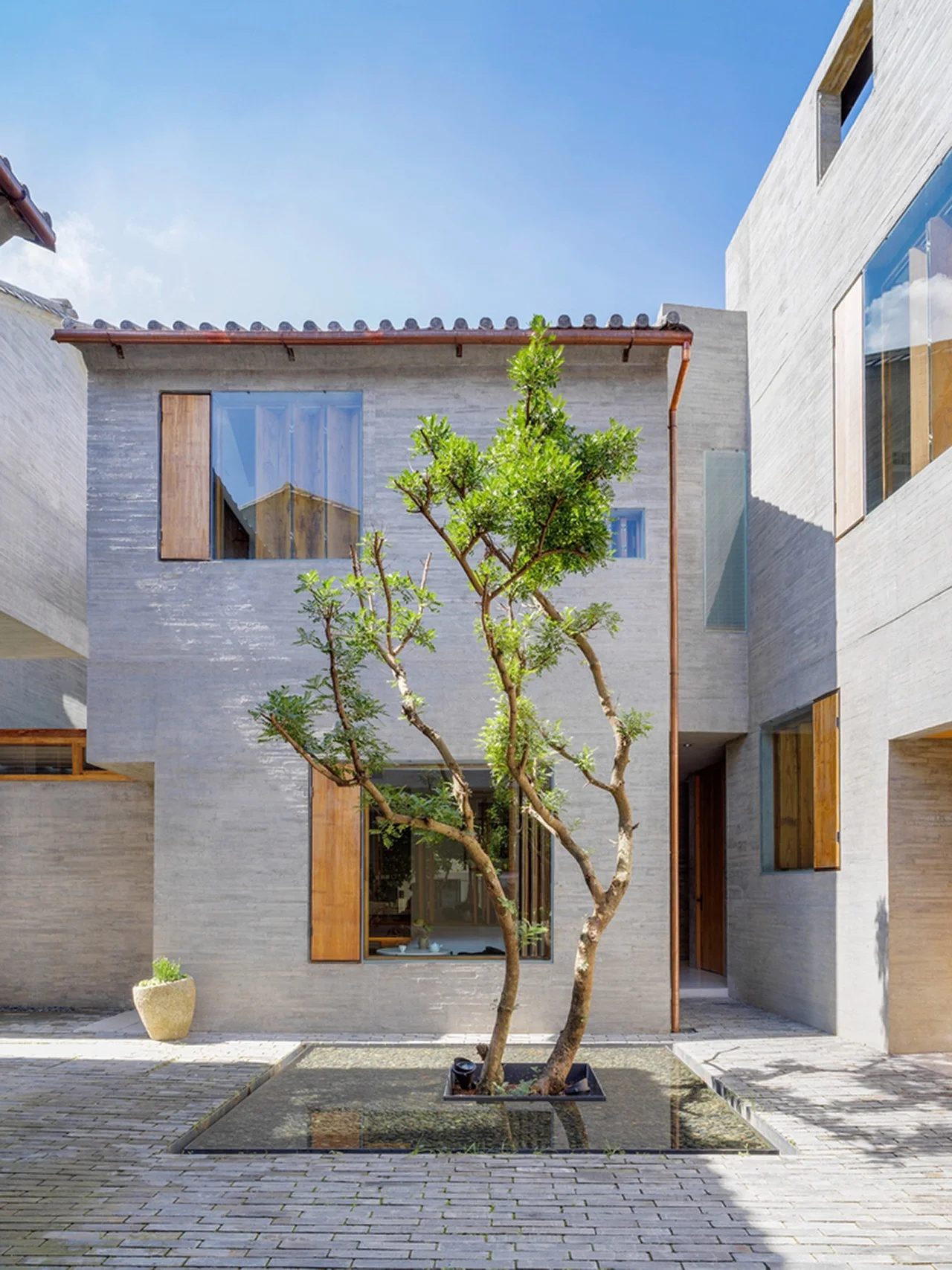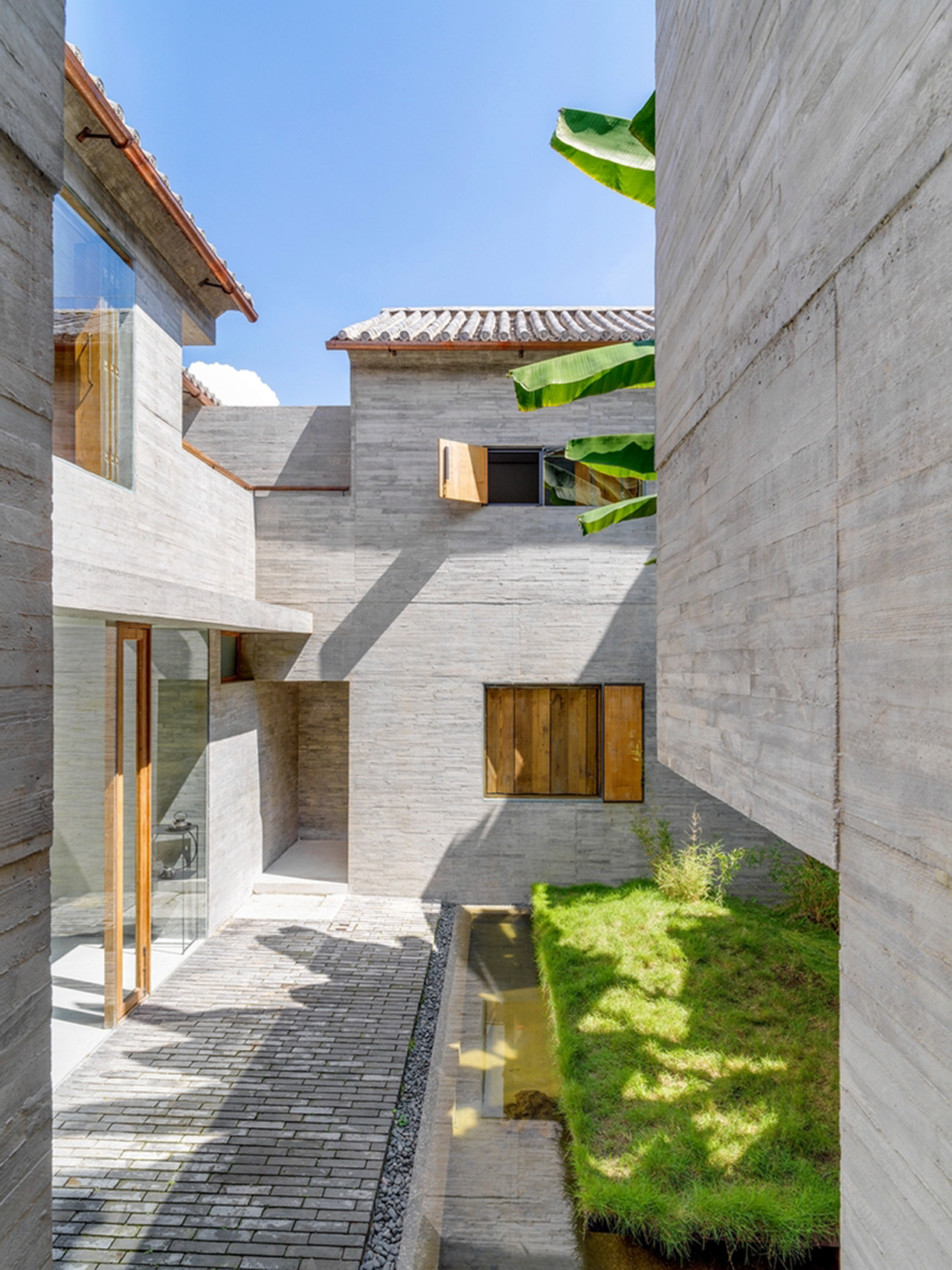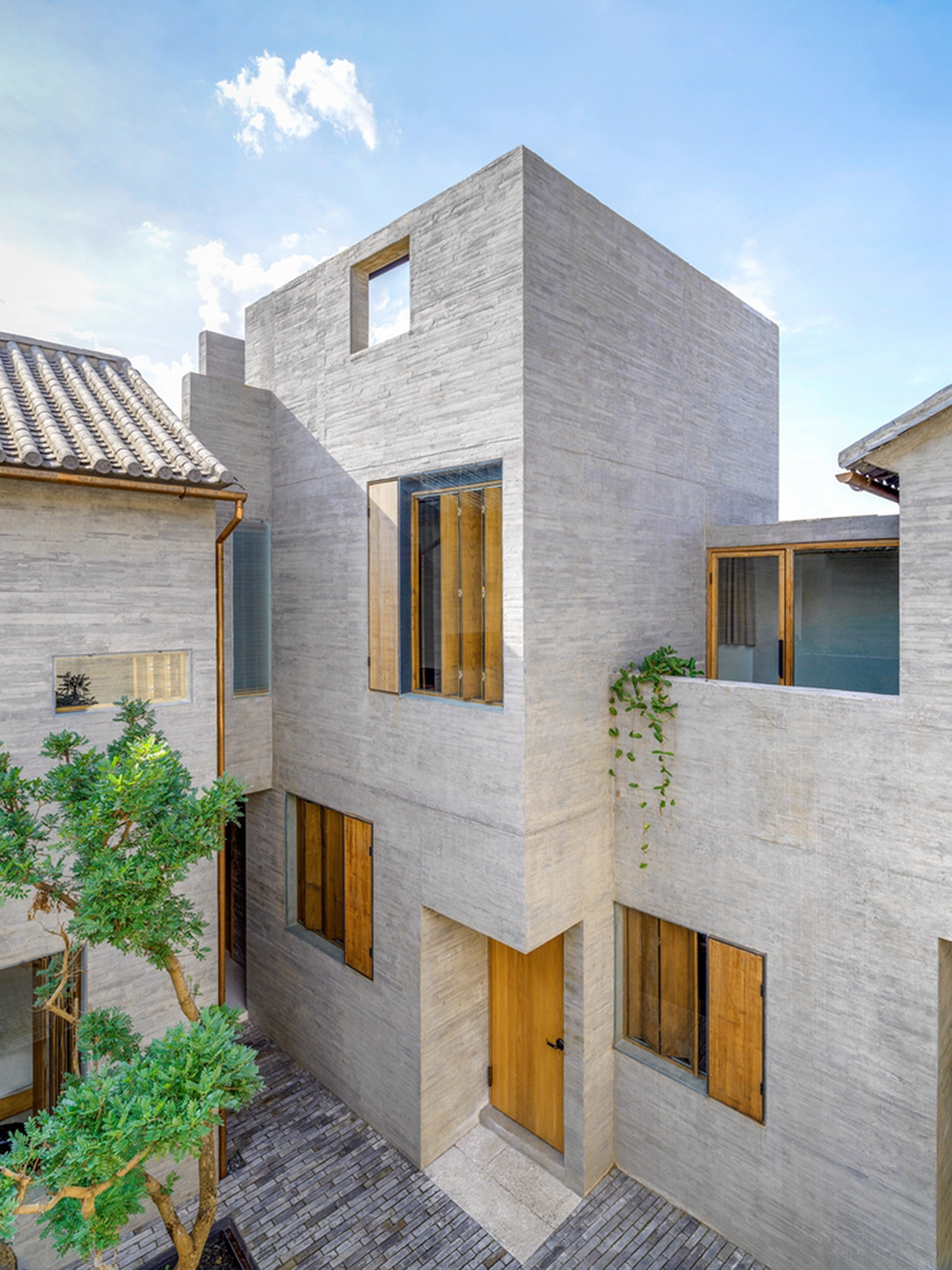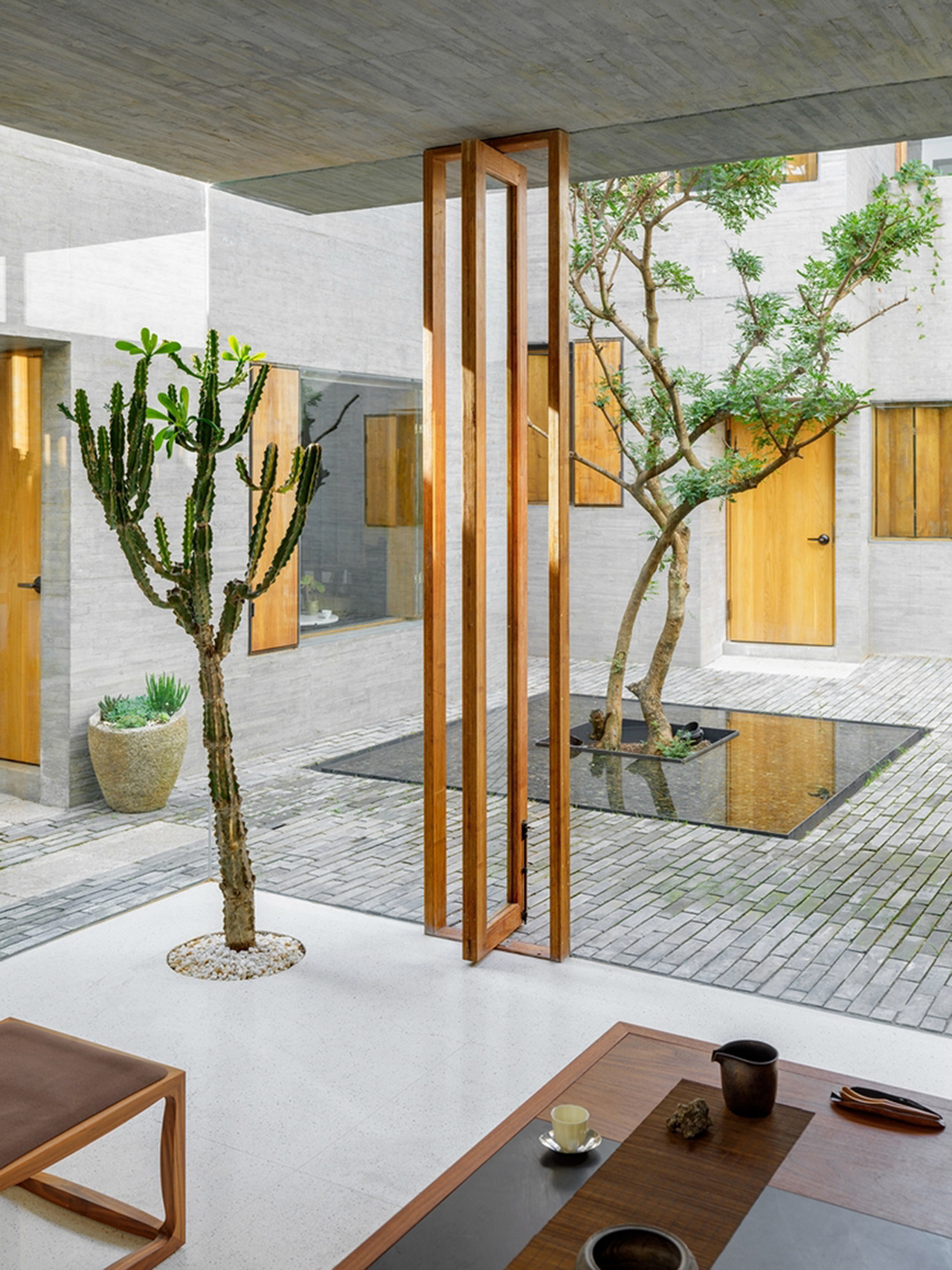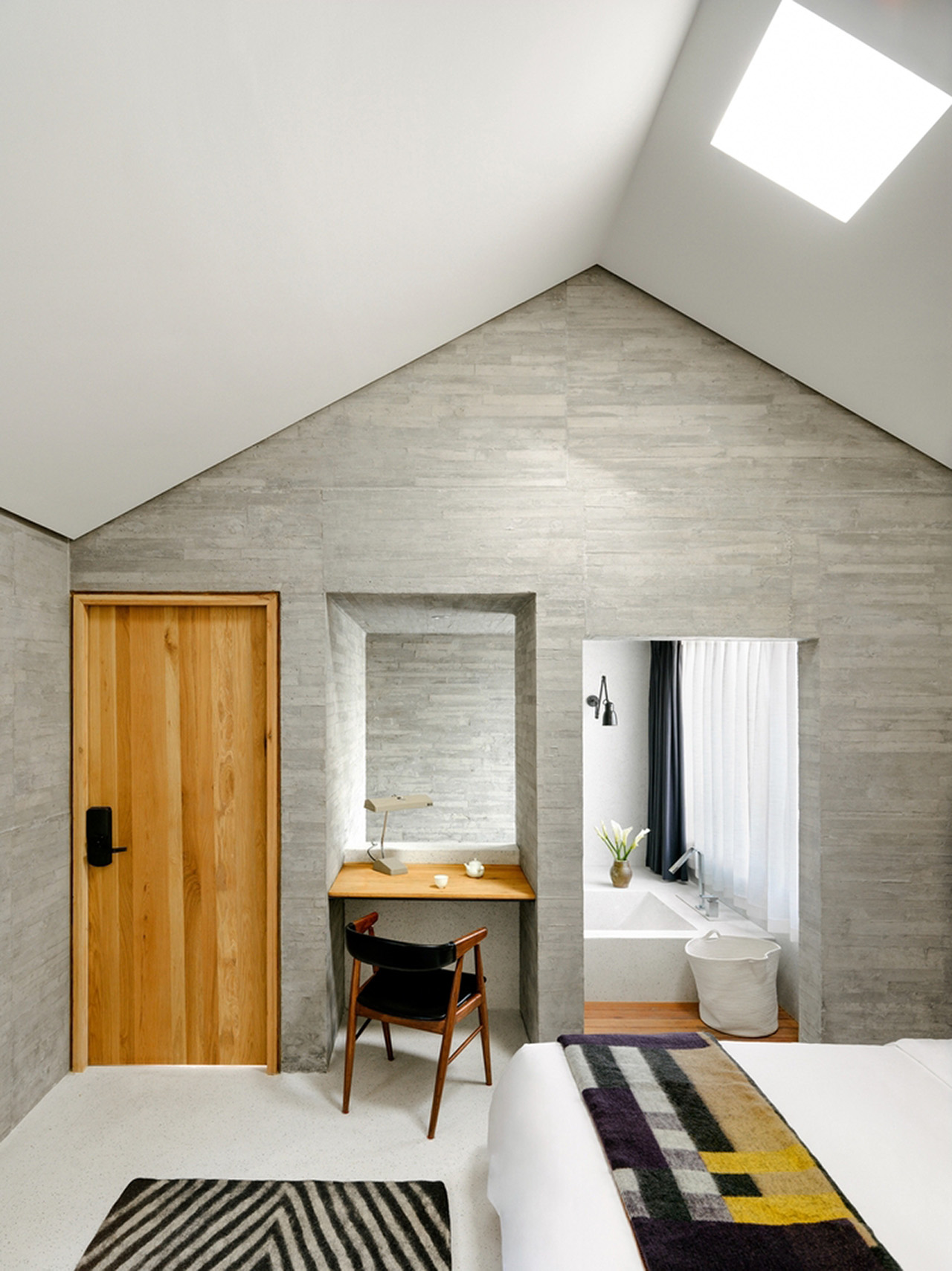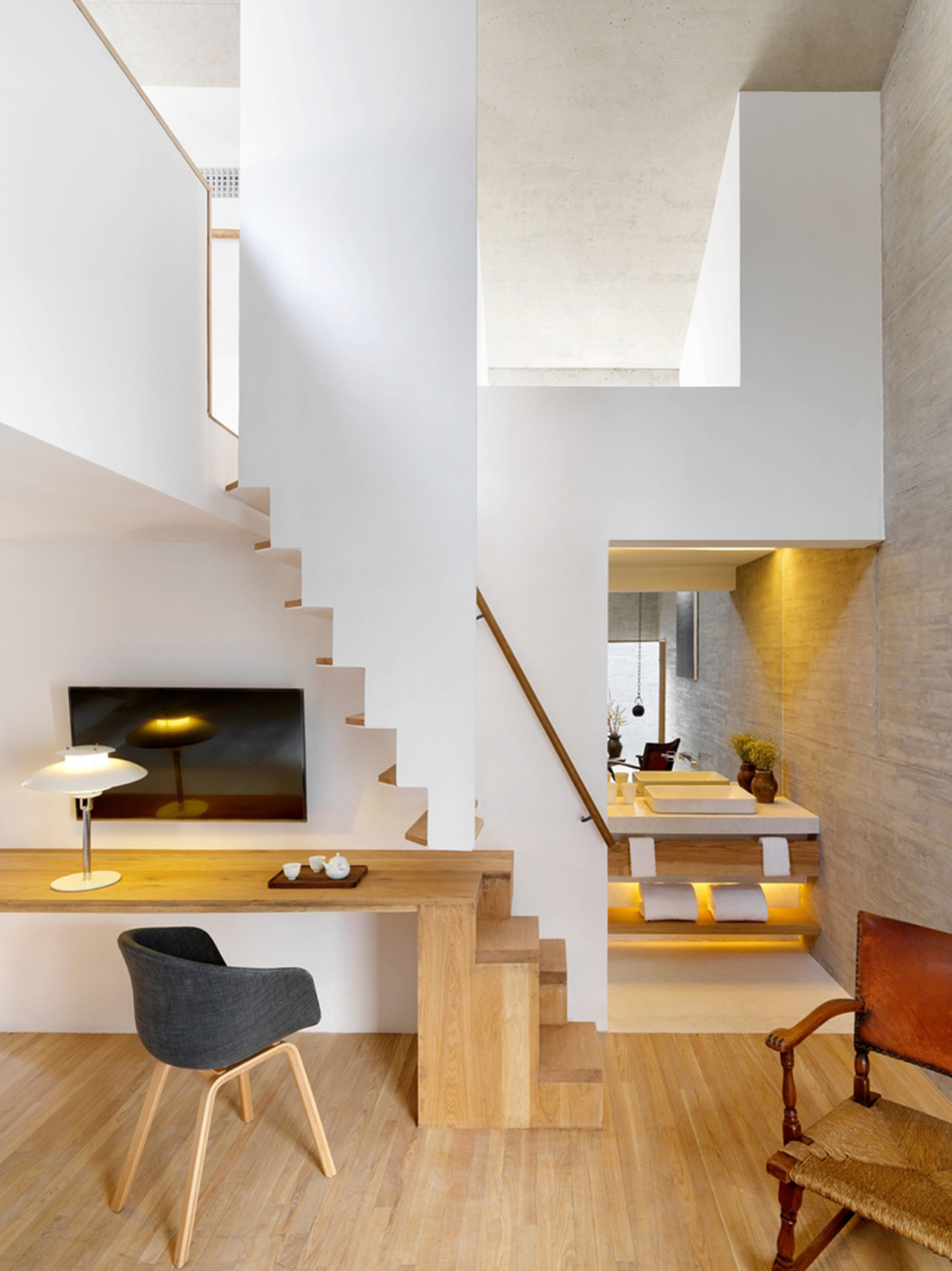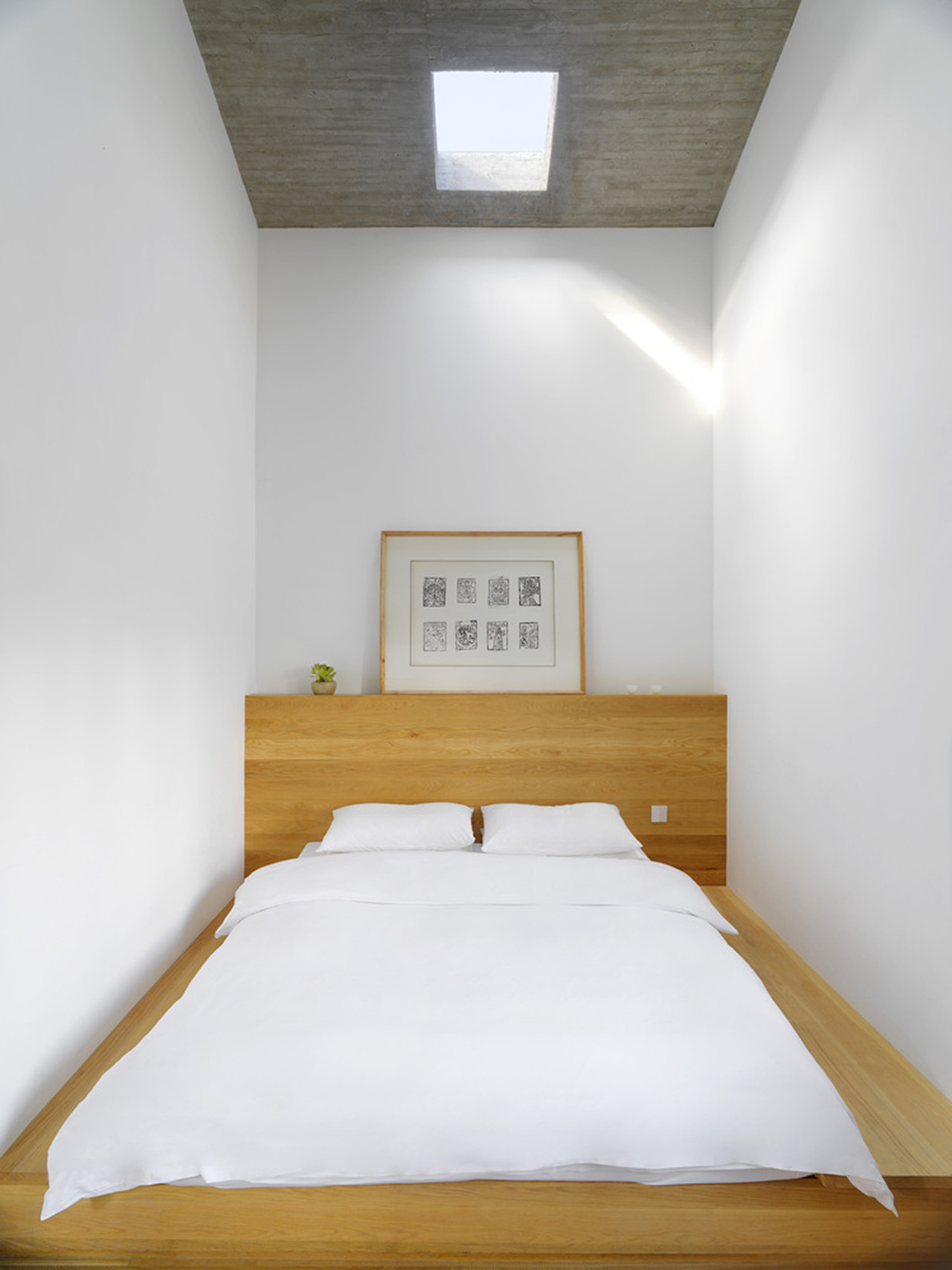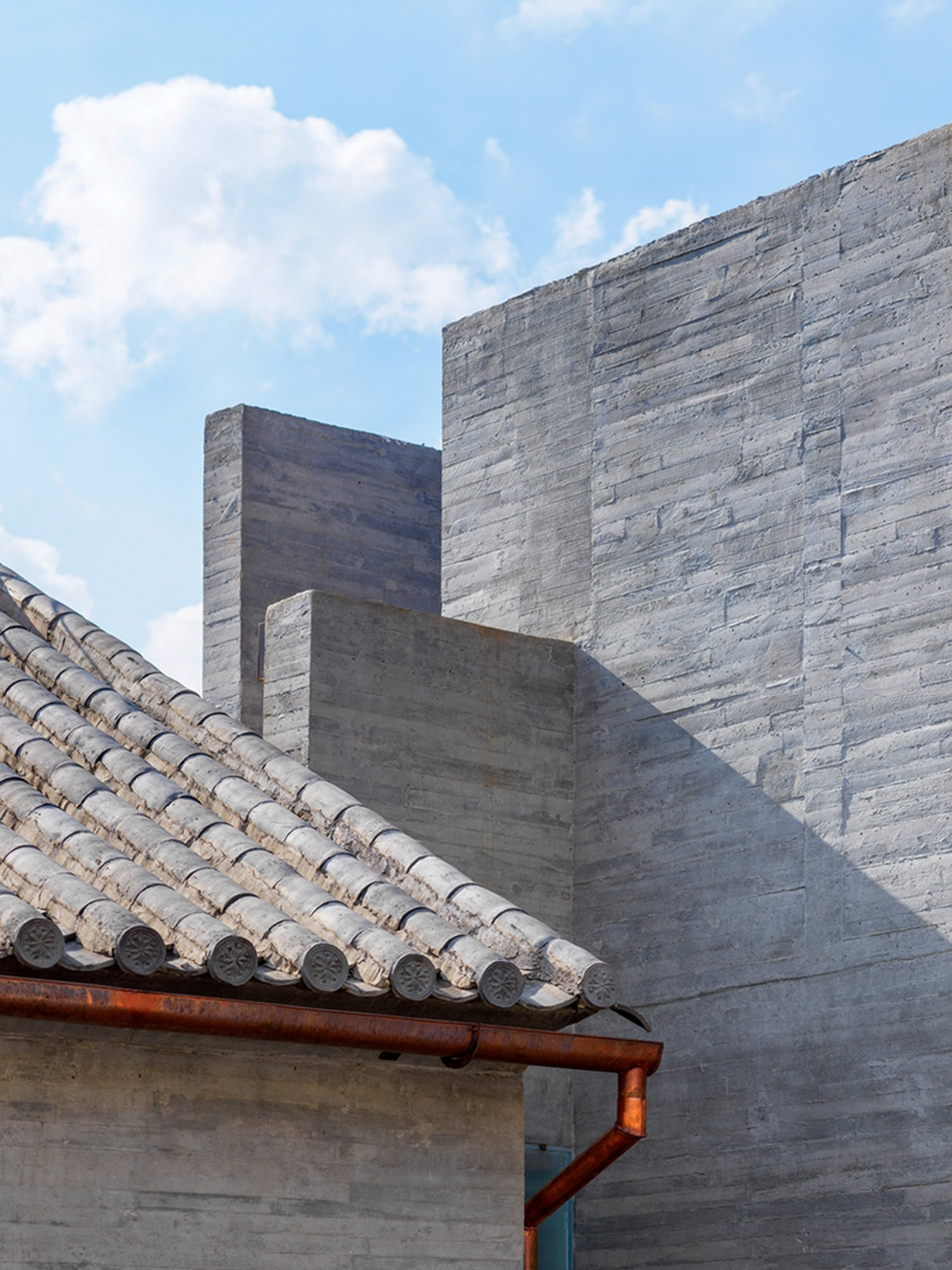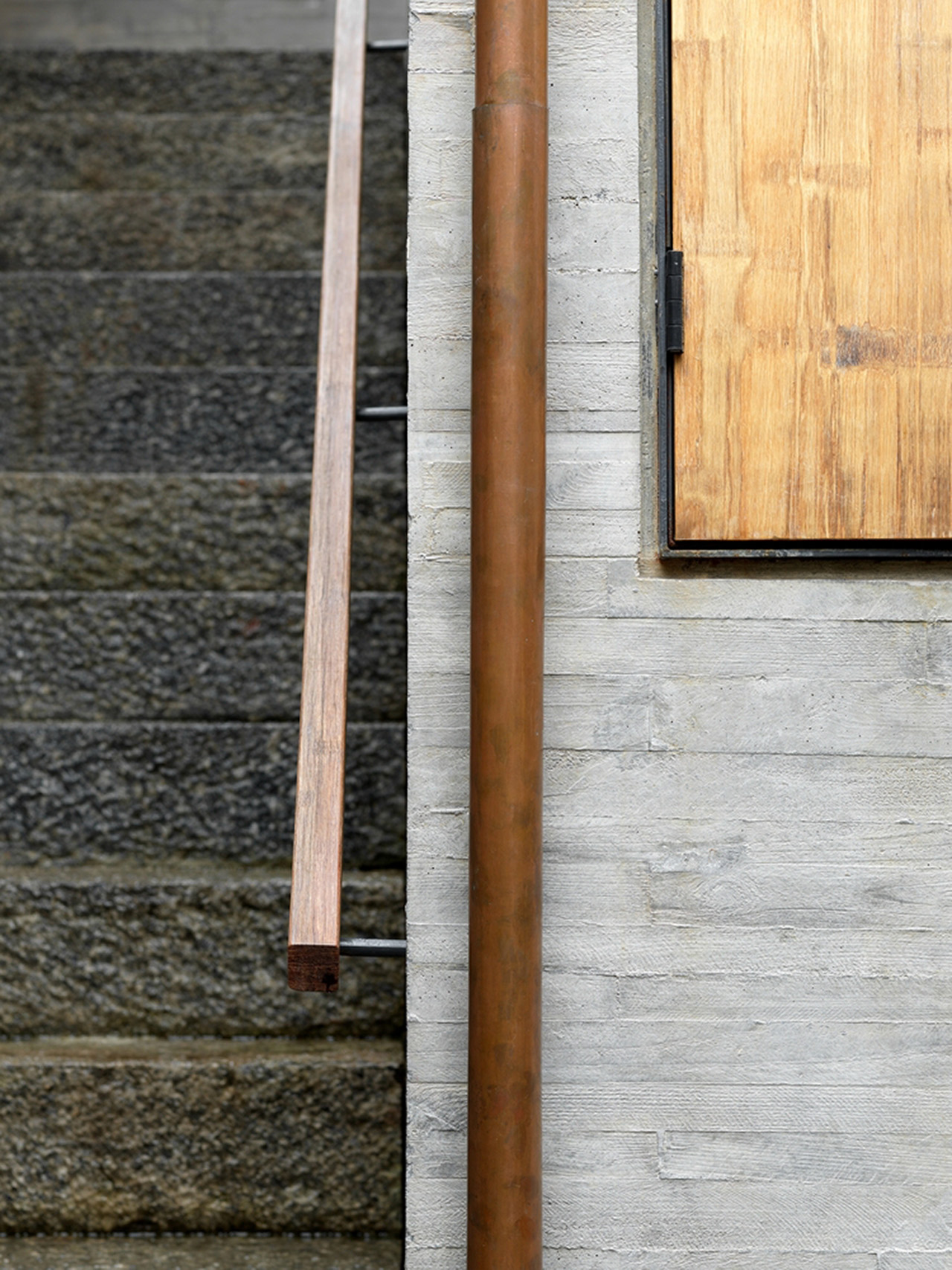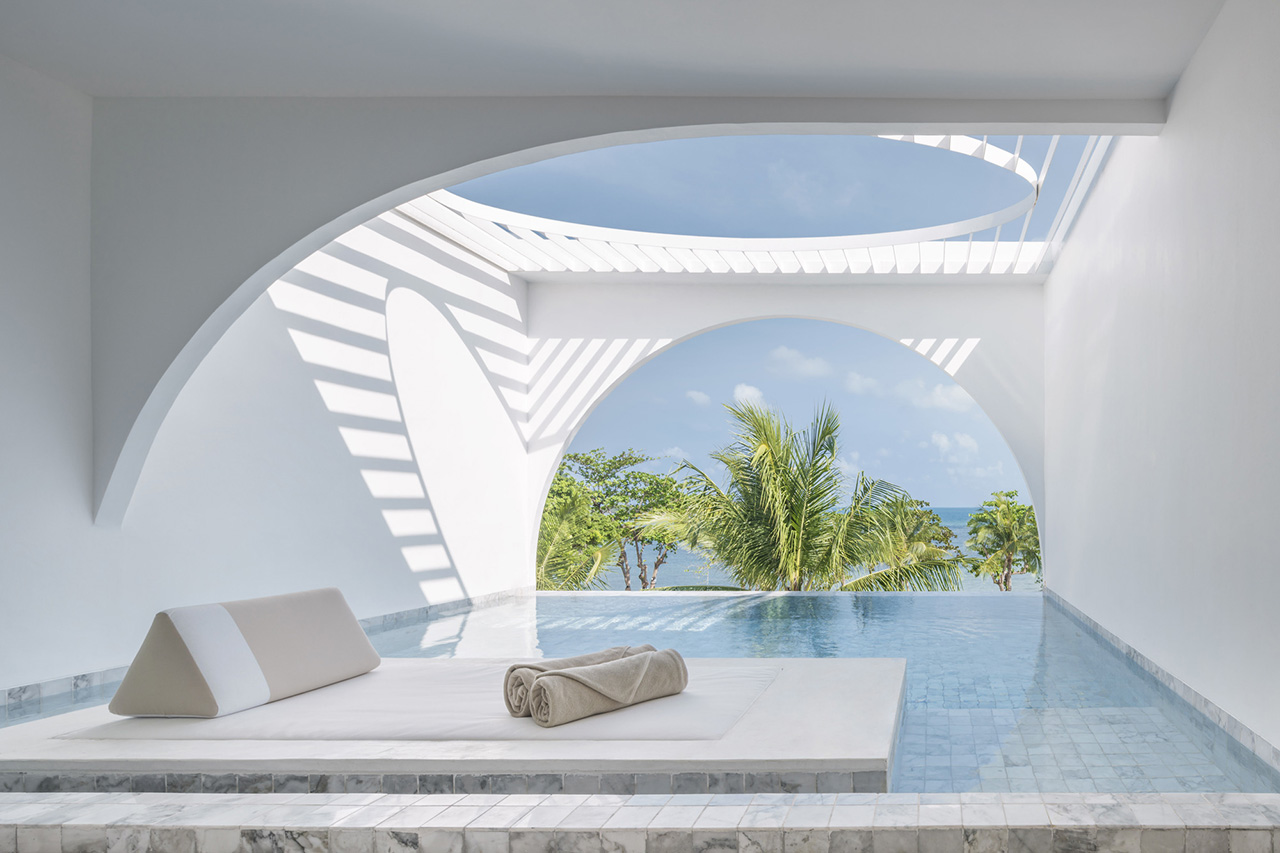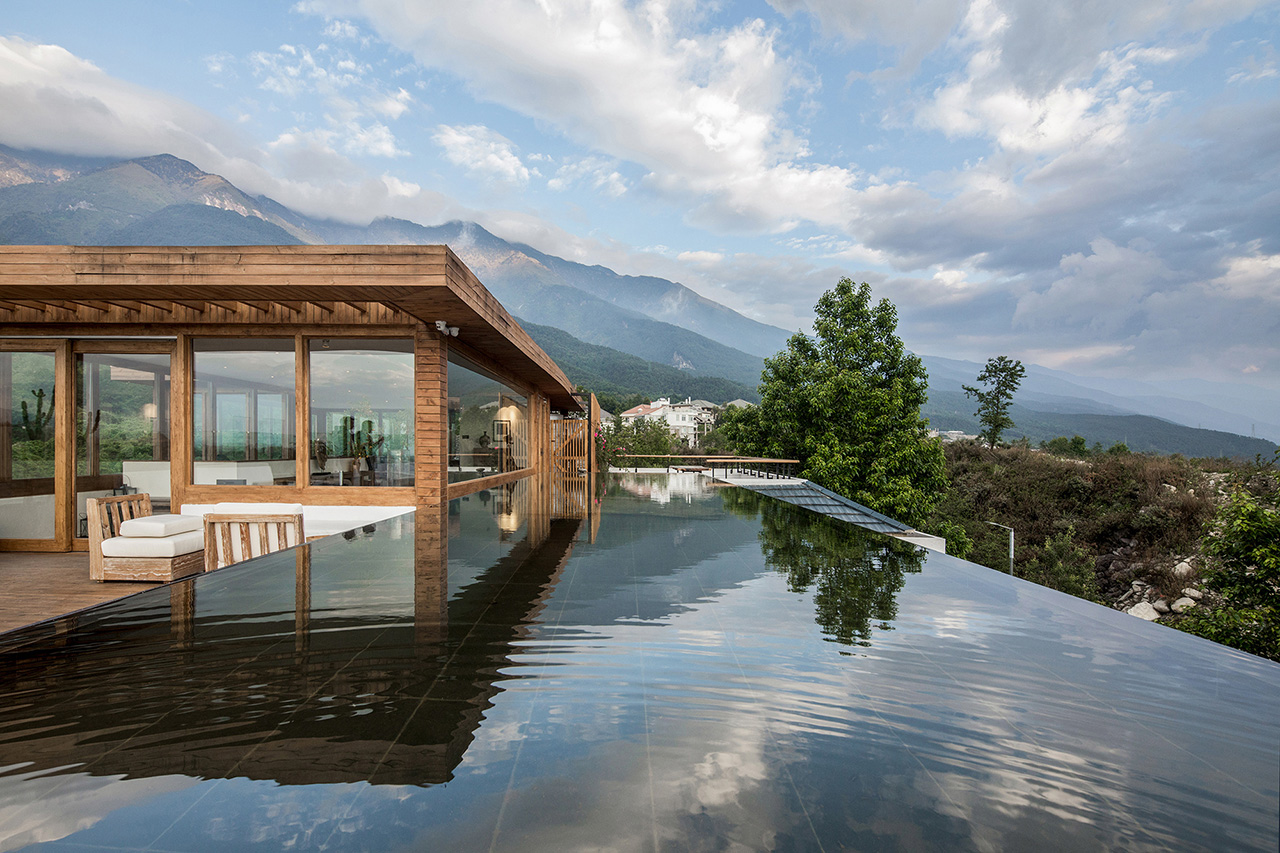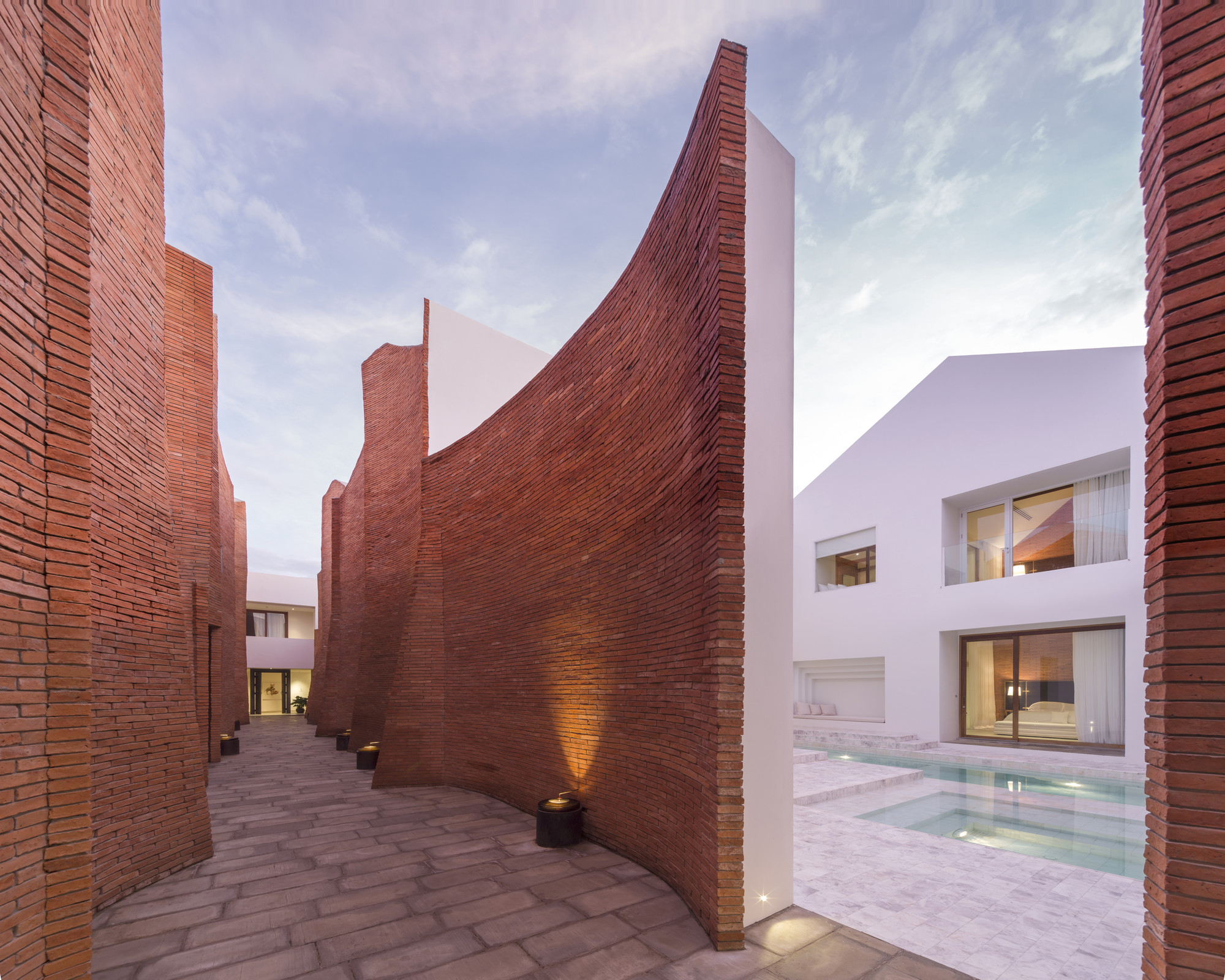SUNYATA HOTEL || Tranquil Boutique Hotel in Dali
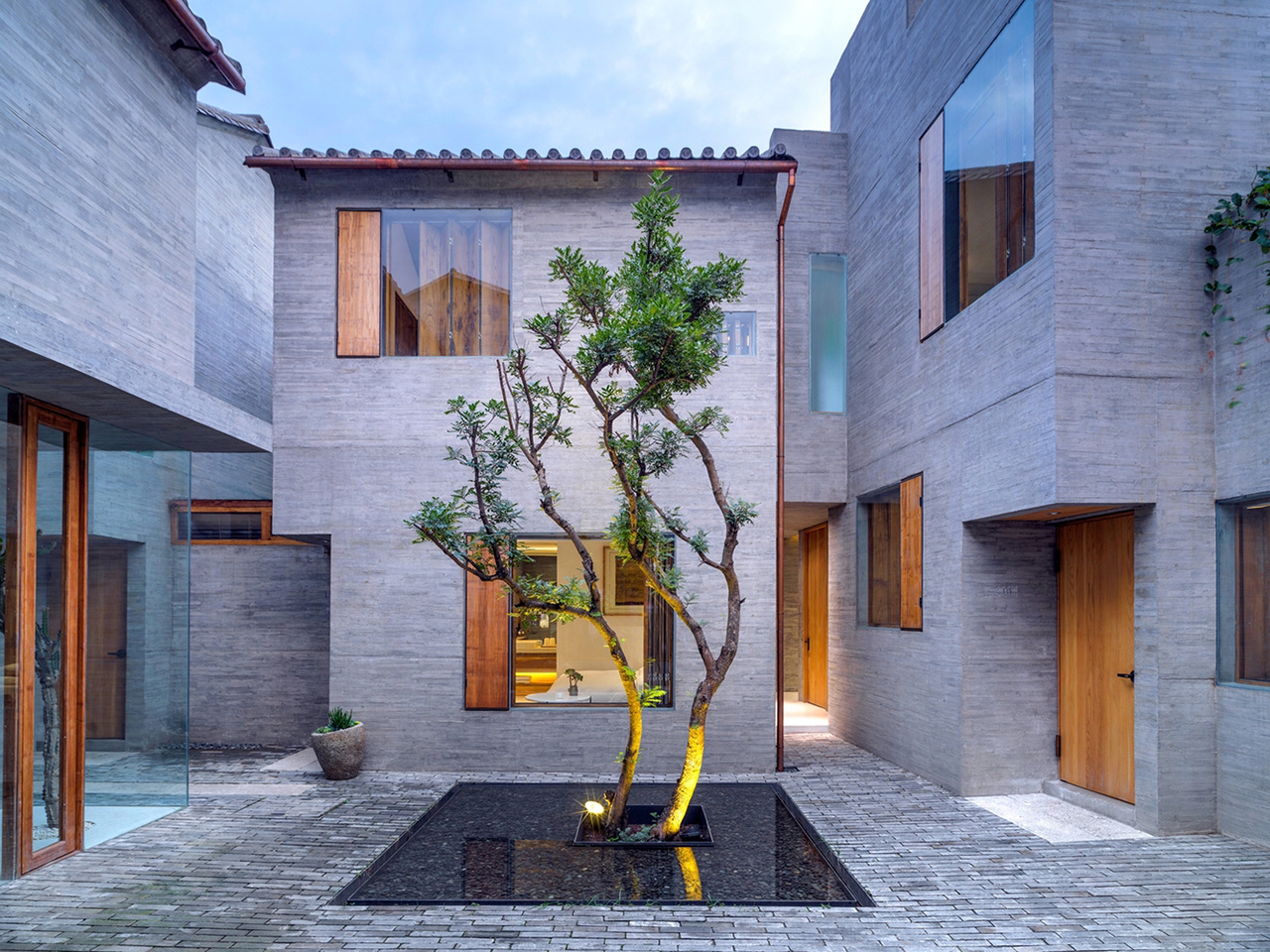
"To design a hotel with no views to enjoy from the surrounding, we had to imagine an atmosphere from within" - Zhaoyang Architects.
The design team at Zhaoyang Architects were faced with a challenge when they were asked to construct a boutique hotel on two pieces of residential land that occupied no more than 4200 sq ft of land. Sandwiched between neighbouring residential sites with barely any views of the surroundings, the design team used creativity to challenge the spatial limit by creating an atmosphere from within. The result is a stunning 14-room boutique hotel complete with an elegant enclosed courtyard and a public cafe that opens to the street.
The spatial arrangement of the hotel rooms lets the courtyard take center stage. Large windows allow guests to look out to the serene setting where greeneries pop amongst the textured cement. Like a secluded village in the middle of the city, the complex provides everything you need while shielding you from the frenetic chaos of the surrounding streets.
Hotel courtyard.
A tea pavilion in the center of the hotel courtyard.
There's no better place to enjoy the tranquility of the courtyard than at the tea pavilion, brilliantly placed in the center of the yard. Glass enclosures shelter guests from the elements as they sip on aromatic hot tea, yet at the same time acts as a spatial divider to create depth in the architecture. This is a wonderful solution to create more livable space without building intrusive walls that limit the spacial perception of the space.
Interior of the tea pavilion.
The tea pavilion is kept minimal to prevent clutter when observed from the outside. Chinese inspired furniture completes the setup, emphasizing traditional "cha dao", which is often practiced in China as a leisure and social activity. Enjoy the afternoon winding down in the bright and airy room while sipping on premium Chinese tea - and what better place to meet your village neighbours than in the tea pavilion?
Both the structure and enclosure of the complex is made of concrete. To counter the heavy feeling of the concrete, the designers used standard sandwich timber board as the formwork to cast the concrete, while deliberately leaving one side of the board naked without veneer. The result is a beautiful irregular pattern on the concrete facade, creating a textured surface reminiscent of natural stone. Paired with accent doors and window frames made of reclaimed wood, and a splash of bright green from landscaped plants, the minimalistic trichromatic complex is a paradise for those who prefer simple tranquility.
In order to adapt to the spatial restrictions, the size, interior arrangement, and position of openings of each hotel room are different. Every single room is treated like an individual residence within the context of the hotel complex, and each with their very own constraints and challenges that allow different characteristics of each room to be celebrated. Price range for each room varies according to their size and spatial design. Minimalistic design continues to flow through the interior of the hotel rooms, drawing attention to structural details, such as the jagged lines of the ascending staircase, or the perfectly centred skylight opening that draws natural light into the bedroom.
(Left) Loft style design in one of the fourteen unique hotel rooms.
(Right) Hotel bedroom with skylight.
Another view from the countyard
In order to adhere to the local planning and construction code, which requires at least 80% of the complex to be covered in traditional tiles, Zhaoyang Architects had to create seven gable roofs and one flat roof. The traditional tiles were chosen in the colour of the cement, keeping the colour scheme consistent throughout. To counter the coolness of the grey cement, bright copper gutters and drainage pipes were chosen as an unlikely accent, lining the roof to capture rain water during the intense rainy seasons in Dali.
(Left) Custom traditional roof tile evoking the aesthetics of old Dali.
(Right) Bright copper gutter piping helps filter rainwater during rain season.
Sunyata Hotel's street front cafe that opens to the street.
With a single side open to the street, the boutique hotel is hidden behind their cafe, which has a patio that spills out onto the street. Nearly invisible to passersby on the busy street, the hotel holds a mysterious allure urging curious pedestrians to peer in through the open doors of the cafe.
If you ever find yourself in the old city of Dali, don't forget to look into Sunyata hotel for a relaxing stay that will bring your life back to balance.
To visit Sunyata Hotel's website, click here.
Photography by Jonathan Leijonhufvud and Pengfei Wang.

